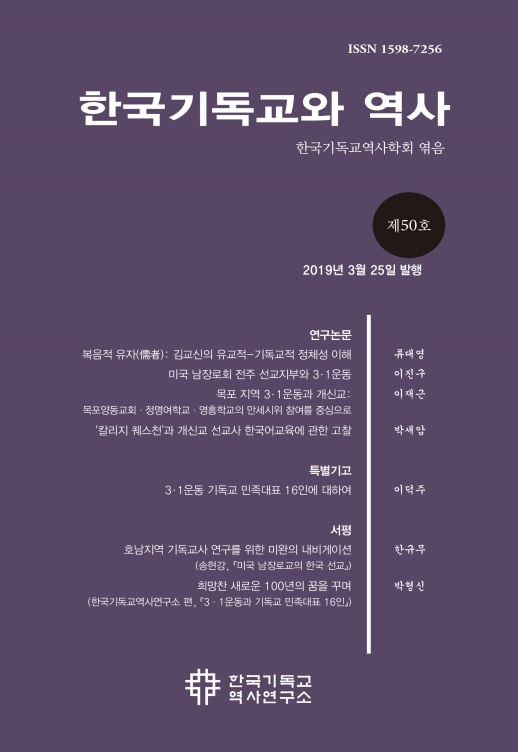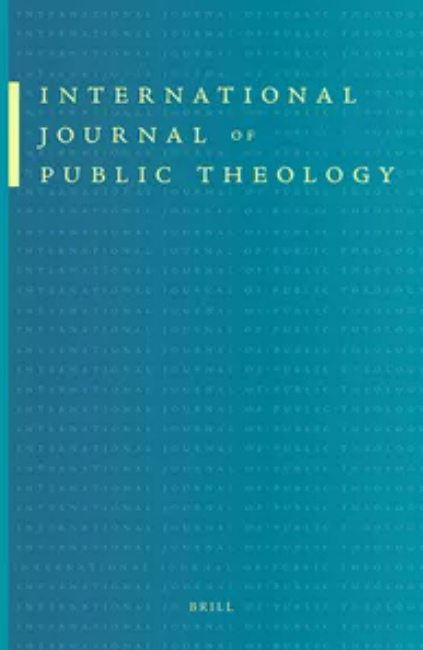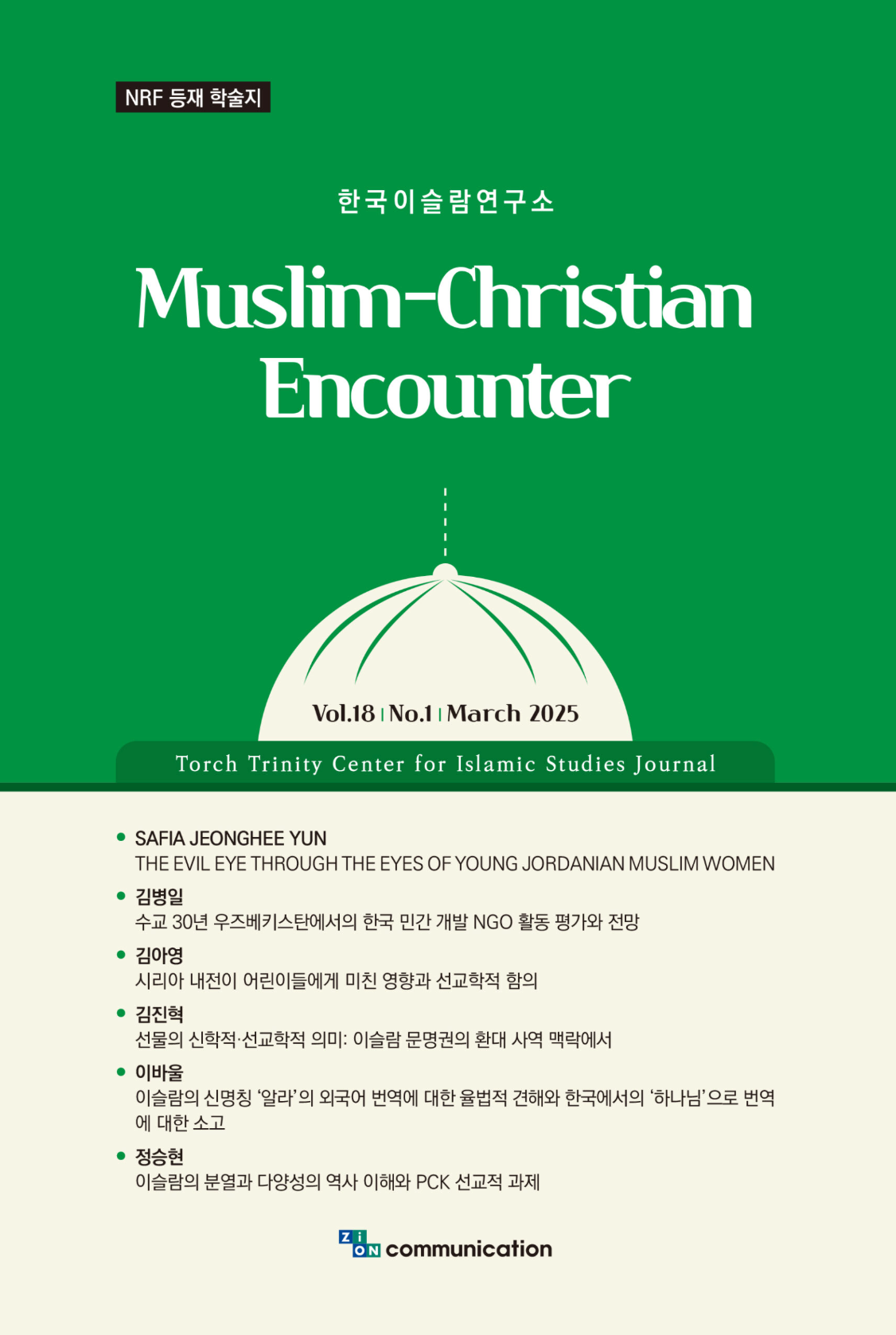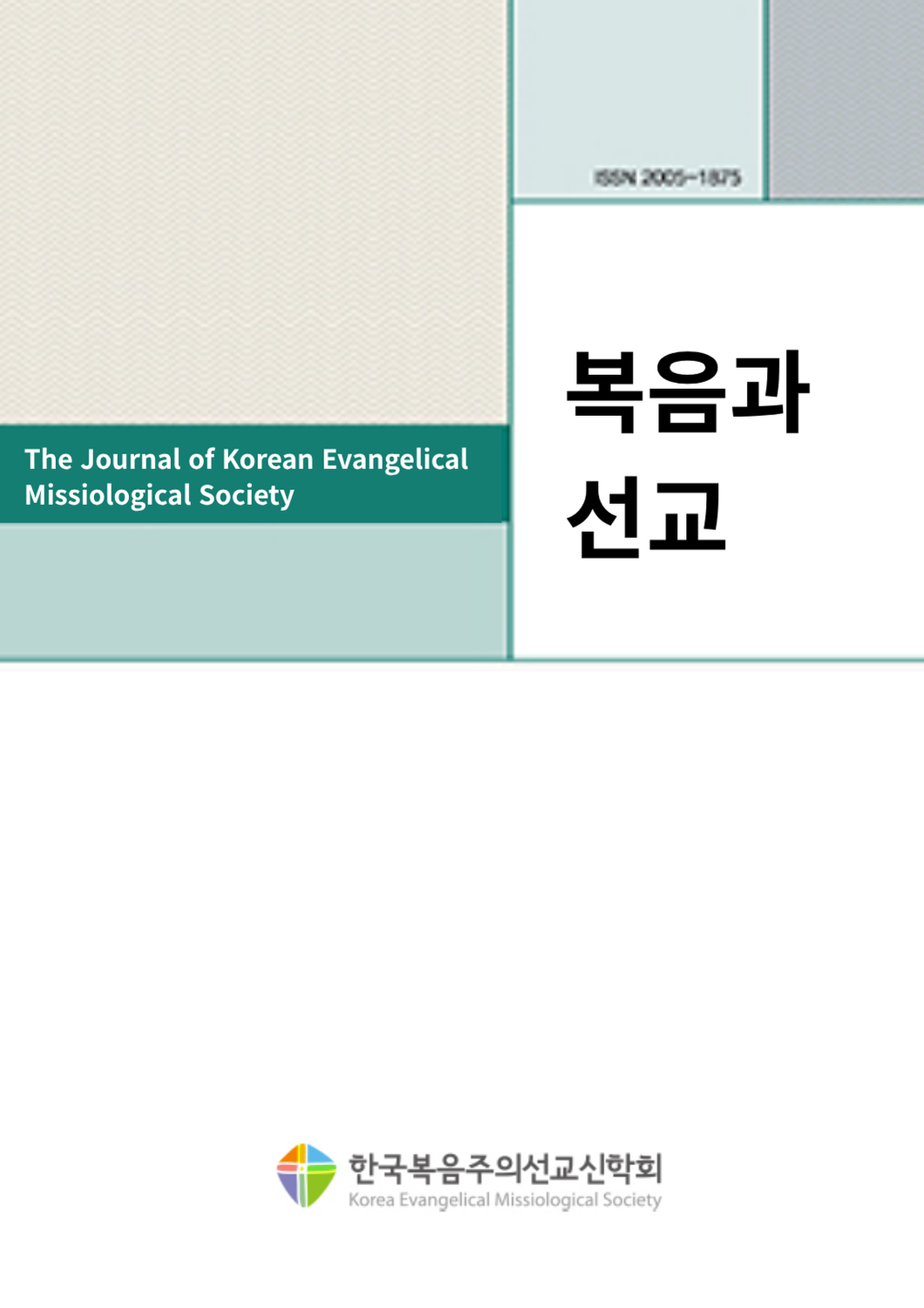본 연구는 1919년 3·1운동 당시 전체 인구의 1.5% 미만에 불과했던 기독교가 민족대표 33인 중 16인(48%)을 차지하는 등 운동의 핵심적 역할을 수행할 수 있었던 역사신학적 배경을 탐구한다. 이를 위해 독립선언서에 서명한 기독교 민족대표 16인의 준비 과정, 종교 연대, 재판 및 옥중 체험, 그리고 출옥 후 활동을 추적 분석하였다연구 결과, 기독교의 주도적 역할은 세 가지 핵심 요인에 기인함을 밝힌다. 첫째, 초기 부흥운동을 통해 형성된 지도자들의 청교도적 경건과 윤리 실천이 사회적 신뢰와 도덕적 권위를 부여했다. 둘째, 개인 구원을 넘어 민족의 정치·사회적 구원으로 확장된 복음주의 신앙이 항일 민족운동의 신학적 토대를 제공했다. 셋째, ‘잃어버린 나라를 되찾는 것이 하나님의 뜻’이라는 종교적 신념을 바탕으로 타 종교와 대화하고, ‘독립선언’이라는 대의를 위해 기독교 내부의 ‘독립청원론’을 양보하는 등 희생과 타협을 통해 종교 연대를 성공적으로 이끌었다. 결론적으로, 이들의 ‘영적 권위’가 ‘사회적 지도력’으로 발현된 과정은 3·1운동에서 기독교가 민족적 구심점이 될 수 있었던 이유를 설명하며 오늘날 한국 교회의 사회적 역할에 중요한 역사적 교훈을 제시한다.
This study explores the historical and theological background that enabled Christianity, a minority religion representing less than 1.5% of the population at the time, to play a pivotal role in the 1919 March 1st Movement, notably accounting for 16 of the 33 national representatives (48%) who signed the Declaration of Independence. To this end, the paper analyzes the 16 Christian representatives by tracing their involvement in the preparation process, their solidarity with other religions, their experiences during trial and imprisonment, and their activities after their release. The study finds that Christianity's leading role can be attributed to three key factors. First, the Puritan-like piety and ethical practices of the leaders, forged during the early Korean church revivals, endowed them with social trust and moral authority. Second, an evangelical faith that extended beyond personal salvation to the political and social salvation of the nation provided a theological foundation for the anti-Japanese independence movement. Third, based on the religious conviction that "reclaiming the lost nation is God's will," they successfully led an inter-religious alliance through dialogue, compromise, and sacrifice, such as yielding their initial "petitionist" stance to embrace the broader "declarationist" cause for unity. In conclusion, the process by which their "spiritual authority" was manifested as "social leadership" explains why Christianity could become a national focal point during the March 1st Movement and offers significant historical lessons for the social role of the Korean church today.







